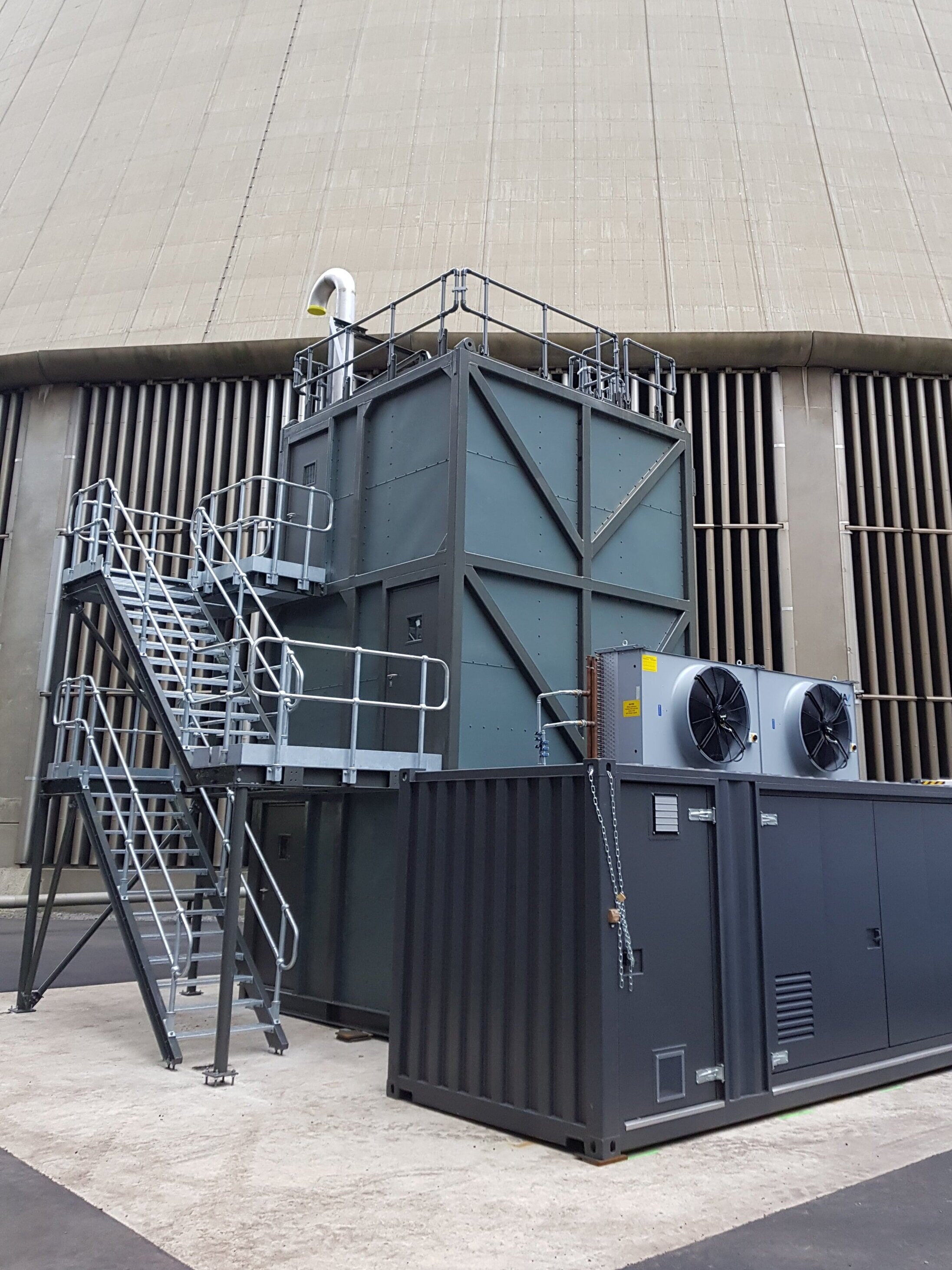CRI DEMONSTRATES CHEMICAL STORAGE OF WIND ENERGY IS POSSIBLE AT INDUSTRIAL SCALE
Carbon Recycling International (CRI) and other members of the EU Horizon 2020 project consortium MefCO₂ have officially completed an innovative chemical energy storage demonstration and successfully passed the external project review by the European Commission. The project coupled CRI’s Emissions-to-Liquids (ETL) technology, which transforms CO₂ and hydrogen into e-methanol, with CO2 capture from a thermal power plant operated by RWE in Niederaussem, Germany. The project demonstrated that chemical storage of surplus power from wind or solar sources (Power-to-Fuel) is already possible on an industrial scale. Electrolysis and synthesis using CO₂ from industrial waste gas represents a scalable solution improving the robustness of the energy system overall, which is increasingly dependent on growth in intermittent renewable energy sources.
The deployment of wind and solar power is growing rapidly, to meet global needs for zero-carbon intensity power generation. Due to legacy investments and costs, grid transmission capacity and storage infrastructure cannot be expanded at the same rate. The technology demonstrated in MefCO₂ is designed to balance supply of electricity from intermittent sources with grid demand. Specifically, the project demonstrated how the CRI ETL system could adapt dynamically to fluctuations in the availability of hydrogen from water electrolysis, which followed electricity generation profile from wind.
While storage and transport of large amounts of energy in the form of hydrogen is expensive, the matching logistic costs for methanol, a liquid, are much lower and can leverage existing infrastructure investment, such as tanks, trucks, ships and pipelines.
System automatically adapts to fluctuations in generation
The demonstration plant in Niederaussem, which was commissioned in 2019, had an installed capacity of 1 ton of methanol per day and was operated in a series of test campaigns over the course of four months. These test campaigns were designed to collect data on the system’s capacity to react automatically to variations in hydrogen availability and to validate the overall environmental benefits of applying the ETL technology to energy storage. The methanol produced in MefCO₂ was utilized for de-nitrification in a wastewater treatment facility in Germany.
The automated ETL process system was able to adjust rapidly to fluctuating electricity generation and the methanol synthesis system followed the changes in the availability of hydrogen. Furthermore, results showed that conversion efficiency in the ETL reactor was not affected by these fluctuations and exceeded design criteria. These results represent the first real-world example of industrial scale chemical energy storage by an integrated and dynamic system.
CRI named Key Innovator by the European Commission
An evaluation report prepared for the European Commission found that the MefCO₂ project provided pioneering knowledge and understanding of the technical frontier of chemical energy storage. The Authorising Officer Jurgen Tiedje remarked:
MefCO₂ can be considered a pioneering project in the field of CO₂ utilisation and chemical energy storage technologies, which has provided a deeper understanding of this technological domain and has possibly opened further opportunities towards the upscaling and commercial deployment of these technologies
CRI has also been named “Key Innovator” by the European Commission’s Innovation Radar due to its contribution in the MefCO₂ project.
Emerging need for grid balancing
CRI’s Emissions-to-Liquids process modules on site in Niederaussem
An immediate and emerging need for grid balancing services, energy storage and cross-sectorial energy transfer presents an opportunity for the technology showcased in MefCO₂. Rapidly increasing expansion of electricity generation from renewable energy sources has produced increased pressure and complexity both on the supply and demand side of electricity markets. In the absence of cost-effective storage solutions operating at large scale, renewable generating assets are underutilized and the grid is not able to respond to unpredictable changes in demand and supply.
Through the implementation of the MefCO₂ project, CRI has gained important know-how and experience which has allowed it to expand its range of high-value products and services.
“Transforming excess electricity into e-methanol and thus a valuable chemical and fuel which can be easily stored, transported and used with current infrastructure, answers one of the key challenges to the continued growth of power generation from renewable sources” said Ingolfur Gudmundsson, CRI’s Chief Executive Officer. ” The positive results from the MefCO₂ project underscore CRI’s pioneering position in the emerging market for Power-to-X and Carbon Capture and Utilization solutions.”
To learn more visit the project website www.mefco₂.eu
This project has received funding from the European Union’s Horizon 2020 research and innovation programme under grant agreement No 637016.


